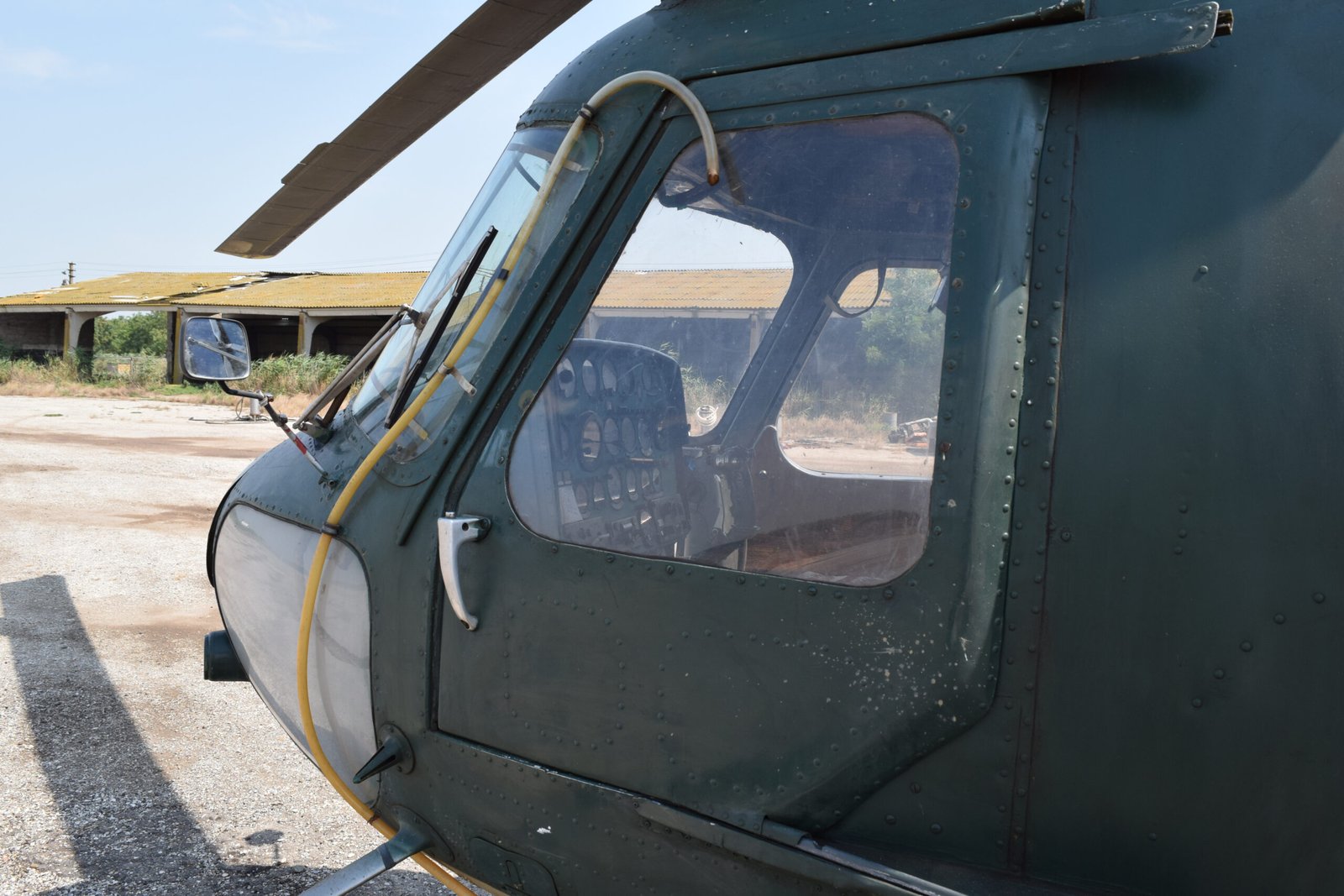UAV
Exploring the World of Drones: The Next Frontier in Aviation
The aviation industry has always been a realm of innovation, and with the rapid rise of drones, it seems we are on the brink of a new revolution. Drones have transcended their initial purpose of military surveillance; today, they’re pivotal in industries ranging from agriculture to filmmaking, and even emergency response. This technological leap invites an exciting opportunity for aspiring aviators and drone enthusiasts alike. Let’s delve into various aspects of this burgeoning field, including aviation schools that cater to diverse interests, essential online resources, and FAA-approved training options.
*Aviation Schools by Types of Courses**
As interest in drones surges, educational institutions are adapting their curriculums to include specialized courses aimed at equipping students with the necessary skills. Here’s a breakdown of different types of aviation programs you might encounter:
1. **Commercial Drone Pilot Programs**: These courses focus on the practical skills required to operate drones for commercial purposes. Students learn about regulations, safety protocols, and flight operations.
2. **Drone Technology and Engineering**: For those fascinated by the mechanics behind these flying machines, engineering programs offer insights into drone design and development.
3. **Aerial Photography and Videography Courses**: Many schools now provide classes dedicated to using drones for photography or videography—ideal for aspiring filmmakers or real estate professionals.
4. **Agricultural Drone Certification**: With precision agriculture becoming increasingly popular, some institutions focus on how drones can optimize farming practices.
5. **Emergency Response Training**: These specialized programs teach pilots how to deploy drones in disaster management scenarios—an invaluable skill set given today’s global challenges.
Whether you’re a hobbyist or seeking a career change, there’s an educational path tailored just for you!
*Lists of Aviation Blogs, Websites & Social Media Sites**
To stay updated on the latest trends in drone technology and aviation as a whole, following reputable sources is key. Here are some noteworthy blogs and websites worth exploring:

**sUAS News (www.suasnews.com)**: A leading source for news related to small unmanned aircraft systems.
**DroneDJ (www.dronedj.com)**: This blog covers everything from product reviews to industry news.
**The UAV Digest (www.uavdigest.com)**: A podcast that dives deep into drone-related topics with expert interviews.
**Aviation Week (www.aviationweek.com)**: While not exclusively focused on drones, it offers comprehensive coverage on all things aviation.
On social media platforms like Twitter or Instagram, searching hashtags like #dronephotography or #dronesinagriculture will connect you with communities sharing their experiences and insights.
*FAA Flight Schools/Airplane Schools/Simulators**
When it comes to hands-on training in piloting either manned aircraft or drones legally within U.S. airspace, FAA-certified flight schools are indispensable resources. Many accredited institutions offer both classroom instruction and practical flight experience with simulators designed specifically for drone operations.
For example:
**Pilot Institute** specializes in providing online courses tailored for passing the FAA Part 107 exam—a requirement for commercial drone pilots.
Local community colleges often partner with certified instructors who teach both ground school curriculum and practical sessions using state-of-the-art simulators.
Online platforms such as Remote Pilot 101 offer flexible options that allow students to learn at their own pace while gaining valuable knowledge about airspace regulations and safety measures.
In conclusion, as we journey further into this exciting era where drones dominate discussions around aviation advancements, education remains crucial. Enrolling in suitable courses can foster understanding while engaging with blogs and social media keeps your finger firmly on the pulse of developments within this fascinating field!
Unlocking the Skies: The Impact of Drones on Modern Aviation
In recent years, the aviation sector has undergone a seismic shift, largely driven by advancements in technology. Among these innovations, drones have emerged as game-changers, revolutionizing not only how we think about flying but also how we train future pilots and aviation professionals. This post delves into various facets of modern aviation, highlighting the influence of drones and cutting-edge training methodologies.
Let’s begin with the pivotal role that technology plays in pilot training. Traditional flight schools have embraced simulators to enhance learning experiences. These sophisticated devices replicate real-world flying conditions, allowing aspiring pilots to practice maneuvers without leaving the ground. Simulators enable students to confront challenging scenarios—like inclement weather or equipment failures—in a safe environment, which is integral for building confidence and skill.

For those eager to explore more about aviation or enhance their knowledge, numerous blogs and websites serve as treasure troves of information. Here’s a shortlist of some must-follow resources:
1. **AirlineReporter.com** – Offers insights into airline news and travel tips.
2. **FlyingMag.com** – A comprehensive source for general aviation enthusiasts.
3. **AvWeb.com** – Provides continuous updates on industry trends.
4. **ThePilotReport.com** – Features pilot stories and aircraft reviews.
5. **FliteTest.com** – Focuses on the fun side of flying with DIY drone projects.
Social media platforms are also rich with content for aviation aficionados. Twitter accounts like @AviationWeek provide breaking news while Instagram accounts such as @PilotLife showcase stunning aerial photography paired with personal narratives from pilots around the globe.
For those who prefer structured learning environments, online aviation courses and ground schools are increasingly popular options. Websites like Udemy and Coursera offer specialized courses ranging from basic aerodynamics to advanced navigation techniques—all from the comfort of home! Ground schools prepare students for FAA tests, covering essential topics such as flight regulations and meteorology.
As drones gain traction in both commercial and recreational realms, they are opening up new career pathways within aviation. Industries ranging from agriculture to real estate now employ drone technology for aerial surveys and inspections, creating a demand for certified drone operators. The FAA has established guidelines that govern drone usage in airspace management; thus understanding these regulations is crucial for anyone looking to enter this field.
If you’re interested in pursuing a career as a pilot or drone operator, it’s wise to stay informed about job opportunities available through platforms like Indeed or LinkedIn where many airlines post openings regularly.
For regulatory insights, visit [FAA.gov](https://www.faa.gov), which provides extensive resources related to licensing requirements for pilots as well as guidance on operating drones safely within U.S airspace.
Embracing innovation is key in today’s fast-paced world of aviation where both manned aircraft and unmanned aerial vehicles (UAVs) coexist harmoniously. Drones not only facilitate new operational efficiencies but also inspire creativity across sectors—pushing boundaries previously thought impossible.
To conclude, unlocking the skies involves leveraging technological advances while fostering an engaged community through education—be it via traditional flight training supplemented by simulators or expanding knowledge through diverse online resources. As we continue navigating this transformative era in aviation history, one thing remains clear: embracing change will propel us all higher than ever before!
Aviation Innovations: How Drones Are Changing the World
The aviation industry has long been at the forefront of technological advancements, and in recent years, drones have emerged as a transformative force. These unmanned aerial vehicles (UAVs) are reshaping how we approach various sectors, from agriculture to emergency response. But while drones are taking center stage, a multitude of innovations in aviation training and resources is also evolving, making it an exciting time for aspiring pilots and enthusiasts alike.

*Aviation and Technology Training: The Role of Simulators**
Flight simulators have revolutionized pilot training. They offer a risk-free environment for students to familiarize themselves with aircraft controls and navigation systems without leaving the ground. Advanced technology has brought about hyper-realistic simulations that can accurately mimic different weather conditions, emergencies, and even various types of aircraft. This immersive experience not only enhances learning but also prepares future aviators for real-world challenges they may face during their careers.
*A Hub of Knowledge: Top Aviation Blogs and Websites**
For anyone interested in staying updated on the latest trends in aviation—especially concerning drones—numerous blogs and websites provide invaluable insights:
1. **Aviation Week** – A trusted source for news on aerospace technology and commercial aviation.
2. **DroneDJ** – Focuses exclusively on drone news, reviews, and regulations.
3. **The Flight Academy** – Offers tips, guides, and information tailored for aspiring pilots.
4. **PPRuNe (Professional Pilots Rumour Network)** – An active forum for pilots to discuss everything from training to job opportunities.
5. **Air & Space Magazine** – Covers broader topics within aviation history and innovation.
Social media platforms like Twitter and LinkedIn also feature vibrant communities where both amateurs and professionals share knowledge about aviation trends.
*Online Aviation Courses: Ground Schools for Future Aviators**
With the rise of digital learning platforms, pursuing a career in aviation has never been more accessible. Numerous online courses cater specifically to those looking to gain knowledge about piloting or drone operation. Ground schools now offer comprehensive curriculums covering essential topics such as air traffic regulations, meteorology, flight planning, and aerodynamics—all available from your living room! Platforms like Coursera or Udemy host specialized courses designed by experts that can help you prepare for FAA certification exams.
Additionally, organizations like the Aircraft Owners and Pilots Association (AOPA) provide both free resources and paid courses designed for various levels of experience.
*Emerging Job Opportunities: The Future of Pilots**
While becoming a pilot has traditionally required hours spent in-flight schools or universities offering aviation degrees, the demand is shifting due to technological advances—including drones! New roles are surfacing within commercial industries that require UAV expertise. Whether it’s drone operators surveying land or delivering packages through innovative logistics solutions—there’s no shortage of options.
The Federal Aviation Administration (FAA) plays a crucial role in regulating these new job markets by establishing guidelines around drone operations. For those interested in pursuing this path further, checking out FAA resources such as their website can be incredibly beneficial; it provides updates on licensing requirements as well as safety protocols.

In conclusion, while drones are undoubtedly changing our world—from enhancing delivery logistics to monitoring wildlife—the underpinning infrastructure supporting pilot education continues flourishing with online courses, advanced simulators, engaging blogs, forums, and regulatory bodies guiding enthusiasts toward successful careers in aviation! By embracing these innovations today we are paving the way for tomorrow’s aviators who will continue to push boundaries beyond our wildest dreams!


